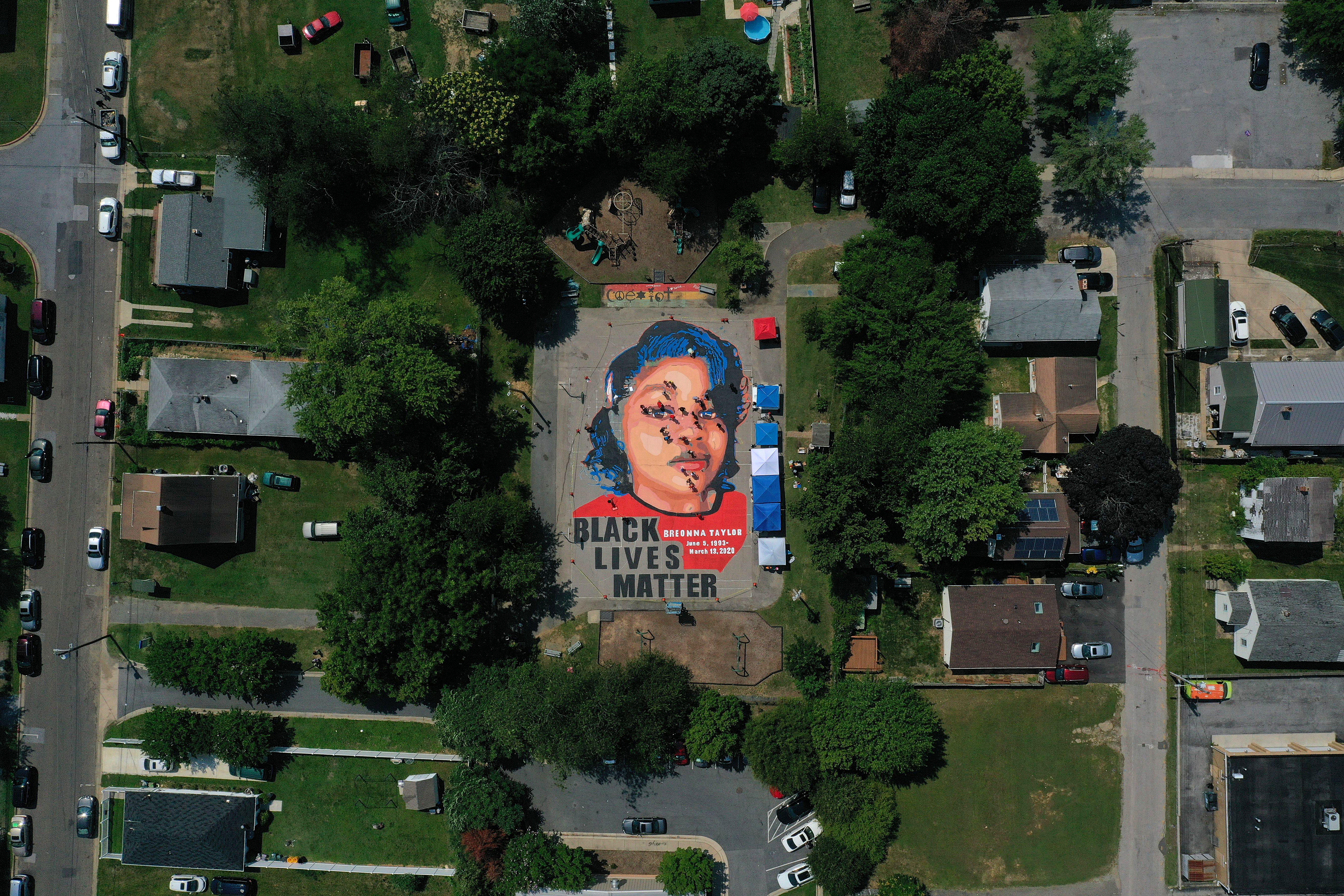DOJ Releases Scathing Report on Police Department Responsible for Breonna Taylor’s Murder

Almost three years to the day after officers fatally shot Breonna Taylor during a no-knock raid, the Department of Justice has released its report showing local law enforcement’s abusive and discriminatory practices have gone far beyond what made headlines.
According to the 90-page behemoth, the Louisville Metro Police Department regularly violates the First and Fourth Amendments of the Constitution, the Civil Rights Act of 1964, the American Disabilities Act, and the federal Safe Streets Act.
The pattern of violations has overwhelmingly and disproportionately affected Black residents, a revelation that probably comes as no surprise to those who have borne the brunt of the abuse or to anyone else paying attention.
In the words of an LMPD leader quoted in the report, “Breonna Taylor was a symptom of problems that we have had for years.”
U.S. Attorney General Merrick Garland helpfully laid down some specifics, telling reporters the department:
- uses excessive force, including unjustified neck restraints and the unreasonable use of police dogs and tasers;
- conducts searches based on invalid warrants;
- unlawfully executes warrants without knocking and announcing;
- unlawfully stops, searches, detains, and arrests people;
- unlawfully discriminates against Black people in enforcement activities;
- violates the rights of people engaged in protected speech critical of policing;
- and, along with Louisville Metro, discriminates against people with behavioral health disabilities when responding to them in crisis.
Garland went on to describe a specialized group of patrol officers first known as the VIPER Unit that turned out to be just as villainous as it sounds. Targeting Black neighborhoods, the officers regularly pulled drivers over for minor offenses as a pretext to fish around for unrelated crimes. State and federal courts have found that the practice of pretextual traffic stops violates the Fourth Amendment protection against unlawful search and seizure.
The unit was “rebranded, but never disbanded,” part of another disturbing pattern cited by the DOJ—leadership’s chronic failure to address misconduct of which they were fully aware.
While devoting time to harassing Black residents and other vulnerable community members with minor traffic citations, the department neglected to focus on more pressing investigations. In particular, they let domestic violence and sexual assault cases slide, the DOJ’s investigation found.
Maybe they were too busy showing an appalling lack of respect for residents they swore an oath to protect. Some officers videotaped themselves throwing drinks at random pedestrians, hurling insults at mentally disabled people, and calling Black people racist slurs—behavior that would get someone fired from just about any other profession.
“This conduct is unacceptable,” Garland told reporters. “It is heartbreaking. It erodes the community trust necessary for effective policing.”
No kidding. But will these findings and pretty words lead to any desperately needed reforms?
According to Garland, the DOJ and Louisville police “have agreed in principle to negotiate toward a consent decree.” For those of us who don’t hold a degree in legalese, a consent decree is a written agreement between parties that is approved by a court.
Hmm. I guess we’ll see if that pans out.
In the meantime, Breonna Taylor’s family still awaits justice, as three of the four officers facing federal charges related to her death have yet to be tried. After multiple delays, the trial of Brett Hankison, who fired shots during the raid, is scheduled to begin Oct. 30. Joshua Jaynes and Kyle Meany will be tried together on federal conspiracy charges beginning Oct. 25. Kelly Goodlett, who pled guilty to falsifying information to obtain the search warrant and conspiring in a coverup afterward, is expected to testify against them.
(featured image: Patrick Smith/Getty Images)
Have a tip we should know? tips@themarysue.com